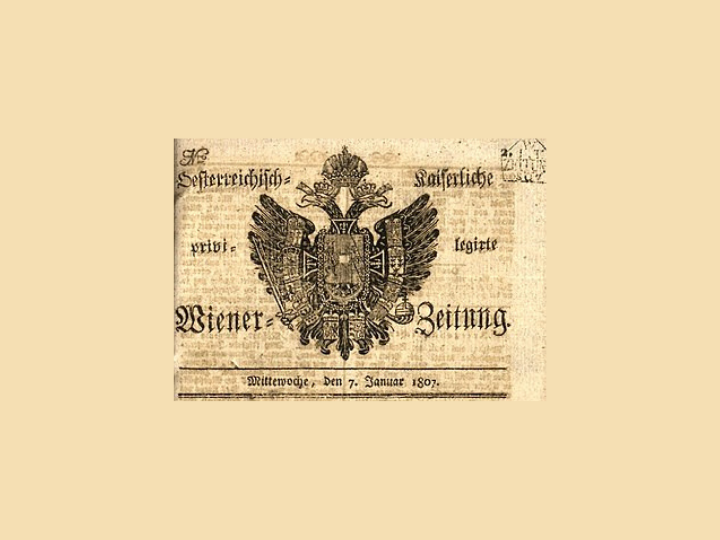by Edward Steen*
The oldest daily newspaper in the world still publishing, the ‘Wiener Zeitung’, is in danger of being closed down. The historic title, founded in 1703 during the Austrian Habsburg Empire, is one of only 14 dailies left in Austria, and one of the last remaining quality titles. It has, argue its supporters, a vital place in a media scene swamped by mass-circulation tabloids.
Mouthpiece of the court in the 18th century, the ‘Wiener Zeitung’ is now owned by the Republic of Austria and publishes official government and obligatory company announcements in a weekly supplement – including cigar prices, since tobacco remains a state monopoly. Most of its contents in the daily newspaper are high-quality, independent reportage, with regular articles about debates about fundamental issues such as the rule of law.
It also covers events like the annual, world-renowned Alpbach Forum, with its own Internet discussion groups. These include commentators such as Otmar Lahodynsky, a long-time Brussels correspondent for Austrian weekly Profil and former president of the International Association of European Journalists (AEJ Int).
The government cites EU Directive (2019/1151) on digital tools in company law as a justification for closing down the paper. But the Supreme Court has ruled that the Directive by no means requires the printed official gazette be discontinued - the EU itself continues to print its own Official Gazette. Nor would it mean that half the Wiener Zeitung’s turnover of 18m € a year would suddenly disappear if official announcements were discontinued.
Closing the Wiener Zeitung would mean the loss of some 100 jobs at an especially difficult time for everyone working in the media, and when Austria has slipped to 18th place in terms of media freedom according to the Reporters Without Borders index.
The Viennese professor of journalism Fritz Hausjell argues that the Wiener Zeitung serves as a potential public service, what he calls a "development laboratory". It is, he argues, well-placed to test how journalism in the modern age can find its audience both digitally and in print. That also benefits other newspapers.
The value of public service media reportage, not least as a counterweight to media concentration, is explicitly set out in the Council of Europe recommendation of 2018 – signed by the Austrian government.
By contrast, in the past year alone the three Austrian tabloids, Kronen Zeitung, Osterreich, and Heute received 60 million euros in advertising from the government and companies and institutions close to the state.
The AEJ is calling for rescuing a vital quality newspaper in order to maintain lively and pluralistic media in Austria. The AEJ supports studying and if necessary promoting and funding the Hausjell proposal.
*former journalist at the FT, London Sunday Telegraph and European Voice (The Economist), currently secretary-general of AEJ Int.




 By: N. Peter Kramer
By: N. Peter Kramer
